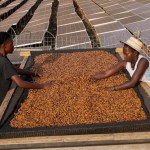(JUBA) – The East African Community’s efforts to deepen regional trade integration are being challenged by inconsistent application of the bloc’s Common External Tariff (CET), with South Sudan and three other member states yet to finalise their national fiscal frameworks for the 2025/2026 financial year.
Experts at a regional webinar on the implications of EAC tax measures said that national interests continue to override collective commitments, undermining the bloc’s Customs Union. The session, hosted by the East African Business Council (EABC), warned that South Sudan, Burundi, DR Congo and Somalia are yet to release their national budgets, key instruments for aligning with CET frameworks.
The inconsistent application of the CET, especially through Stays of Application (SoAs) and Country Specific Duty Remissions has disrupted uniform tariff rates and introduced significant distortions in trade. These exceptions allow countries to temporarily adjust or avoid agreed duty rates, with over 41.3% of tariff lines across the region affected in the current financial year.
According to the EABC, more than 2,464 tariff lines across the region have been subject to stays or remissions under EAC Legal Notice No. EAC/171/2025. These exemptions disproportionately affect the manufacturing and agro-processing sectors—including key goods like textiles, iron, steel, plastics, and leather—which are vital for value addition and industrial growth in South Sudan and other EAC countries.
| EAC Tariff Policy Snapshot | Estimated Impact |
|---|---|
| SoAs Coverage (2023/24–2024/25) | Over 30% of CET tariff lines |
| Duty Remission (Country-Specific) | Over 10% of CET tariff lines |
| Tariff lines affected by exemptions (2025) | 2,464 lines (41.3% of total) |
| Sectors most impacted | Manufacturing, agro-processing |
| Potential gain from resolving tariff issues | $63.4 billion in regional trade |
| Target intra-EAC trade share by 2030 | 40% |
| Actual intra-EAC trade share in 2024 | 12.17% |
Despite a 14.17% increase in the EAC’s total trade in 2024, reaching $124.9 billion, intra-EAC trade only grew by 9.35%, from $13.9 billion to $15.2 billion. This means that nearly 88% of trade remains with external partners, leaving the bloc vulnerable to global shocks and missing out on potential regional synergies.
The East African Business Council is advocating for uniform CET application, clearer regional guidelines on SoAs, and phased limits (maximum of 3 years) to prevent long-term distortions. These changes are expected to improve transparency, predictability, and investor confidence across the region, including in South Sudan.
The council also recommends eliminating charges of equivalent effect on goods of EAC origin traded between member states, and conducting structured consultations before the pre-budget cycles. This will ensure that stays and remissions do not weaken regional trade obligations.
In the meantime, corporate tax and other levies continue to differ widely across EAC states. In Rwanda, corporate tax stands at 28%, while it is 30% in Kenya, Uganda, and Tanzania. South Sudan’s rates remain unclear, adding further uncertainty to investors and regional trade partners.
| Selected Tax Comparisons in EAC | Kenya | Uganda | Tanzania | Rwanda |
|---|---|---|---|---|
| Corporate Income Tax | 30% | 30% | 30% | 28% |
| Employer Payroll Taxes | Minimal | 10% | 14% | 8.3% |
| Employee Payroll Taxes | 35% | 45% | 40% | 36.3% |
| VAT | 16% | 18% | 18% | 18% |
| Excise Duty (on services, varies widely) | Yes | Yes | Yes | Yes |
South Sudan’s delay in harmonising tax and trade policies may limit its ability to attract investments under the EAC Common Market. Experts urge the Ministry of Finance in Juba to participate actively in regional budget consultations and adopt aligned CET policies from July, when the EAC fiscal year begins.
The EABC is also calling for the inclusion of the private sector in national pre-budget discussions to improve the business environment and ensure trade policies support regional integration goals.
If the current fragmented tariff implementation continues, economic analysts warn, South Sudan and its regional partners may miss out on the projected $63.4 billion trade gain and a 54% rise in intra-EAC trade.


















































